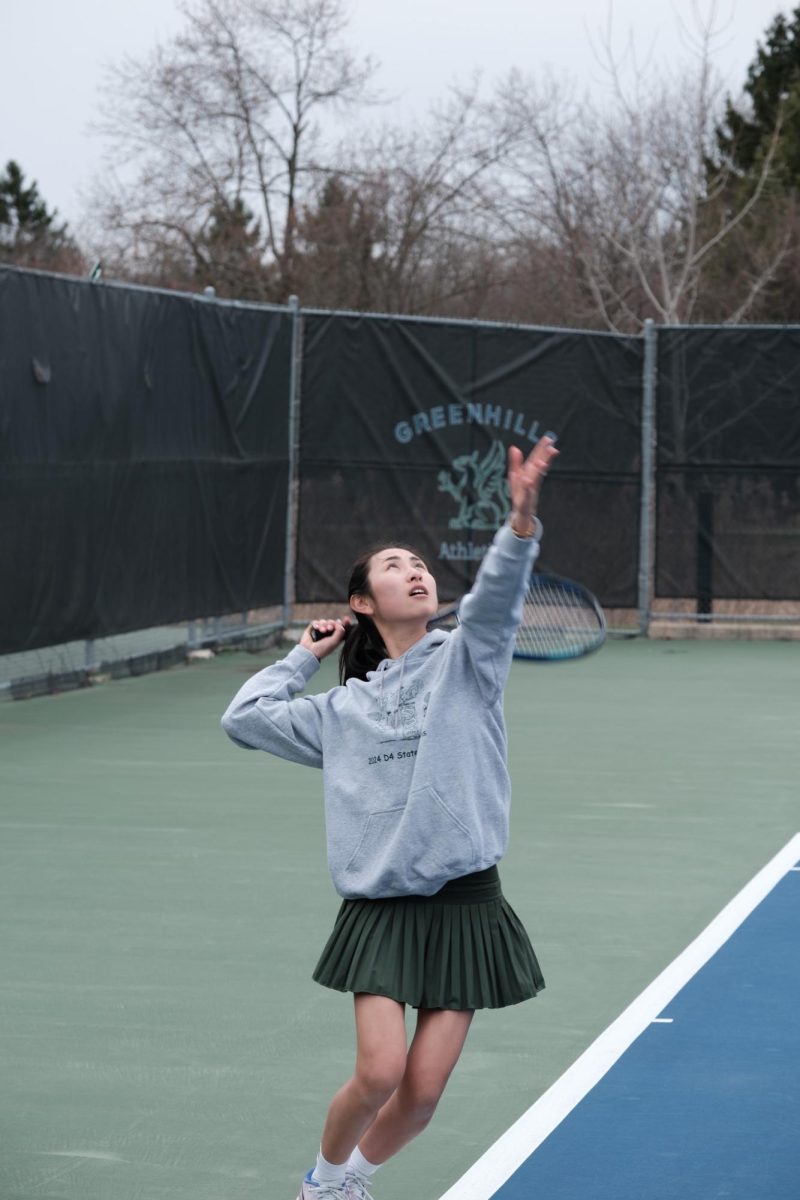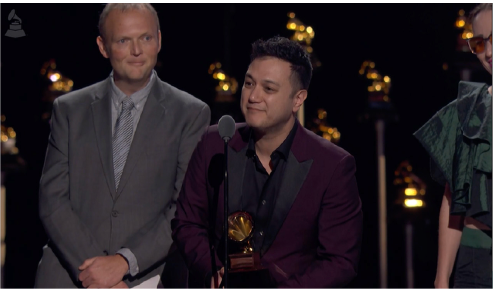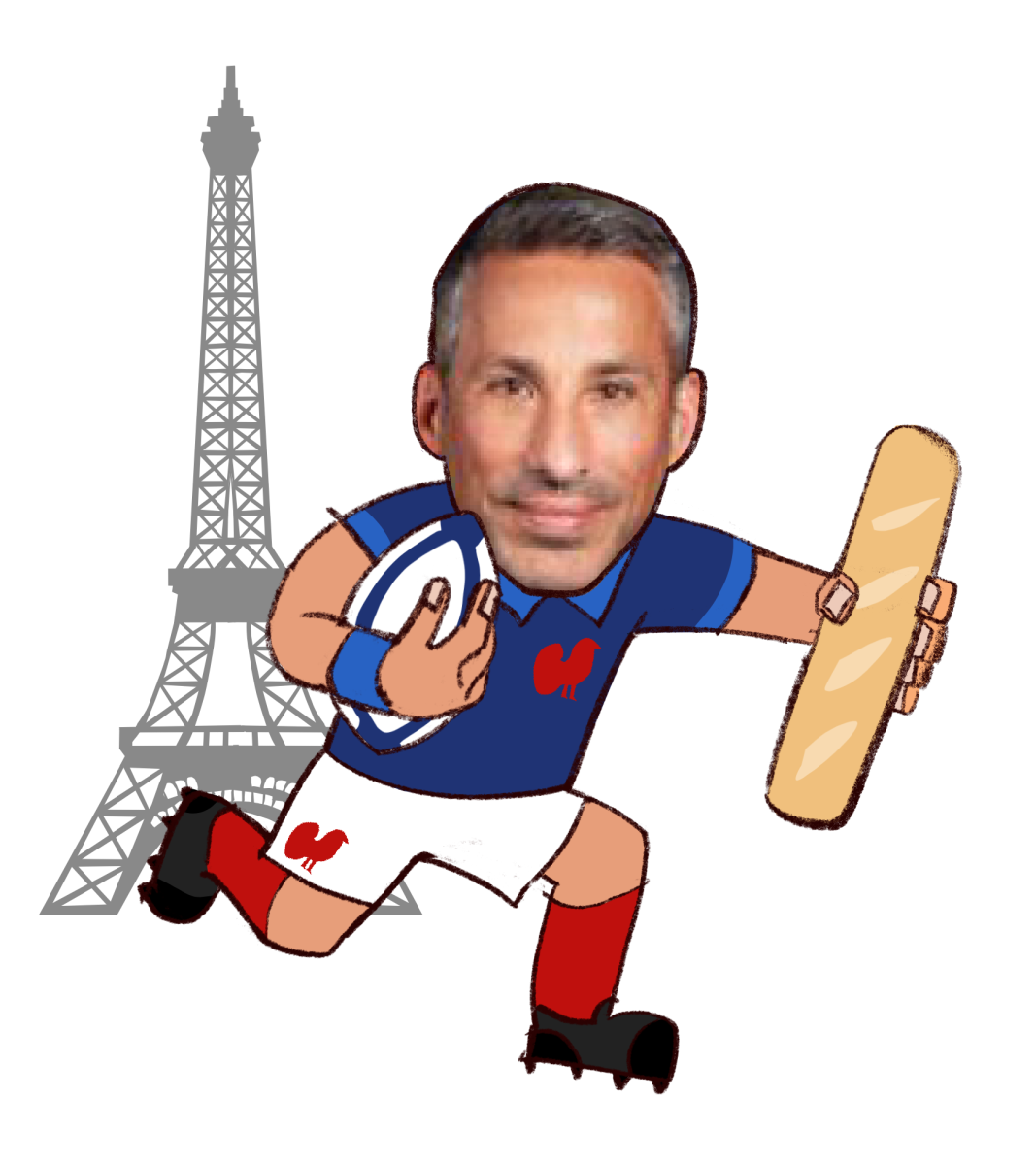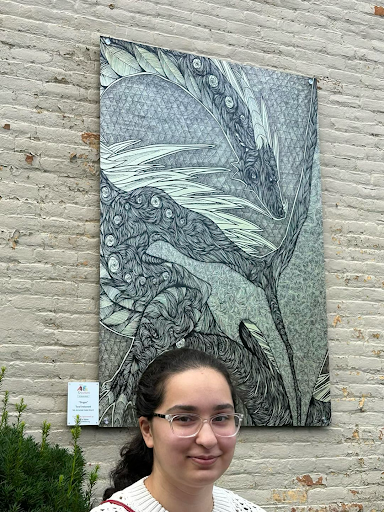Our country was built on the foundation of democracy: the rule of the many. Today, everyone living in the U.S. gets a vote — as long as you’re a citizen. That’s why Advanced Biology teacher Julie Smith became a dual citizen of Canada and the United States in May 2024.
Smith has been living in the U.S. for 15 years, since August 2010. Prior to that, she taught at an independent school in Toronto, Canada.
“A friend told me about this organization that is like headhunters for education,” Smith said. “Greenhills got my contact information and I came for the interview, and how do you not fall in love with Greenhills, right? It was amazing.”
During her time in the U.S., Smith has established a community and life. One part of that life is her church, through which she has met many friends and students, including Lizzie Redinger ‘27.
“She’s just been around for so long,” Redinger said. “She’s just Aunt Julie to me. I’ll go help her with yard work, and she got her house renovated recently, and we helped her move some things around.”
Although Redinger has never been in Smith’s class, Alex DaSilva ‘26 has experienced both worlds, learning from Smith in both the Sunday school classroom and the Advanced Biology classroom.
“She’s taught me a lot of important things,” DaSilva said. “She’s taught me to follow my faith, and also one of the biology rules, ‘Don’t freak out.’ It’s hard not to get caught up with grades, but she’s always there reminding me not to freak out.”
In 2023, Smith decided to apply for dual citizenship of both the U.S. and Canada. A major factor in Smith’s decision was the upcoming 2024 presidential election. Smith wanted to be able to vote in the election so that she could be represented and her voice could be heard.
“I had never planned to become a citizen,” Smith said. “I had kind of been like, I will always be Canadian. But then I got to thinking about it and knowing that the election was coming up, and seeing what was happening, I was like, I want to become a citizen so that I can vote because I wanted my voice to be one of the ones.”
The immigration process can vary from months to years. For Smith, the process took seven months. First, she applied to be a citizen, then attended a citizenship interview, and finally had a swearing in ceremony where she took the Oath of Allegiance.
“I come from Canada, I think that that helps, that’s made my experience less difficult,” Smith said. “Quite frankly, I think the fact that I’m white makes my experience less difficult. If there’s one thing I’ve learned about living in this country, it’s that those things really do matter.”
During a time of tensions between Canada and the U.S., Smith has observed how these tensions are affecting her personal experiences. Going into stores, talking to friends and family, and retirement plans have all been touched by these issues.
“I will say that Americans don’t have any idea how upset Canadians are right now,” Smith said. “Canadians are really upset and really scared. I talked to a guy that worked for my dad in high school, and he was almost in tears. He and his wife were ready to retire and now, their retirement savings are not worth nearly as much as they were, and they can’t retire.”
Smith says that Canadians are finding forms of retaliation as consumers. Recently, the Canadian government placed a 25 percent tariff on alcohol and other goods. Unlike the U.S., in Ontario, most liquor is controlled by a government-run company called the Liquor Control Board of Ontario (LCBO). The LCBO sells almost $1 billion worth of U.S. liquor every year.
“In stores, people are looking at the labels and where something might say that it’s from Canada, if it’s actually not, people are turning things upside down on the shelves or taking it back to the shelf so people know not to buy them,” Smith said. “I have friends who have canceled trips to Florida for spring break. Like, this is their spring break, and they’ve canceled their trip.”
Looking to the future and retirement, Smith is unsure about her plans. Initially, Smith planned to return to Canada for the benefits of the Canadian healthcare system.
“She’s definitely very proud of being Canadian,” DaSilva said. “She tells a lot of stories about Canada in class and her Canadian heritage.”
However, in recent years, the choice has become more difficult. With increased international turmoil, Smith is rethinking her future.
“Up until very recently, I always thought that when I retired, I would move back to Ontario,” Smith said. But I’ve lived here for 15 years now. I’ve got a life here. I’ve got friends here. I like Ann Arbor. More recently, I’m feeling very conflicted about where I will end up. We’ll have to see.”



















